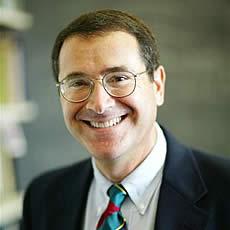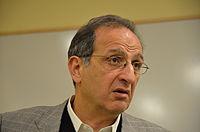What Pope Francis Must Say to Donald Trump
There is a rising tide of nativism washing over the United States at this particular moment. We have seen such waves recurrently in our history. In the 1840s, it was the Know-Nothings, who hated Catholics and opposed Irish immigration and were even responsible for riots and other acts of violence.
In the 1920's, it was the turn of the Ku Klux Klan. Even while these hooded terrorists attacked African-Americans in the south, they also campaigned against immigration on racial and religious grounds. The eastern and southern Europeans then entering the country, they maintained, were impossible to assimilate. They were Catholic, they were Jewish, and most of all they were "un-American." These campaigns succeeded in largely shutting down immigration to the United States for forty years, from the 1920's to the middle 1960's.
Today, we are witnessing what is shaping up to be a sorry rerun of this awful history. Anti-immigrant sentiment has been on the rise in political circles for some time. It was on vivid display in Virginia in last year's Republican congressional primary, when the upstart David Brat unseated Eric Cantor, one of the most powerful men in Congress, on the strength of a thinly-disguised nativist appeal.
The nativism on display today can no longer even be described as "thinly disguised." It is open, it is blatant, and it is foul. Donald Trump, of course, remains the biggest offender. He has spoken in the kind of blunt, racist language that even the defenders of segregation avoided in the 1960's. When talking about Mexican migrants, he has used language like "rapists," and "criminals," to brand and stereotype and demean an entire group of people. He routinely uses the kind of vulgarities that would have made even George Wallace blush.
Trump's gutter vulgarity has drawn the Republican field with him. Ben Carson, who was once a world-class neurosurgeon, has more recently called upon the Department of Defense to use drone aircraft to attack "caves" that immigrants use in their passage across the border. And Carson is supported by the so-called Christian right?
And then there is Jeb Bush. Has there ever been a more inept pretender to a throne since Aethelred the Unready? When criticized for his continued use of the term "anchor babies, he explained that he really meant to apply it to "Asian people," not Hispanics. Good God, what a consummate disaster!
Pope Francis is coming to the United States in just a few weeks. And I devoutly believe that the most urgent task confronting the Pope on his visit is to call the American people away from the poisonous swamp of nativism.
Pope Francis is ideally suited for this task. He has pledged his pontificate to the defense of the marginalized and has made a special concern of his the plight of immigrant peoples. In July, 2013, early in his pontificate, he traveled to the island of Lampedusa, in the Mediterranean, the scene of so many preventable human tragedies. "Immigrants dying at sea, in boats which were vehicles of hope and became vehicles of death." The Pope fairly wept at the dimensions of the horror he confronted.
Pope Francis' trip to Lampedusa was meant to remind Christians of the common origin and destiny of all of humankind. "Cain, where is your brother?" God asked. Cain replied, disingenuously, that he was not his brother's keeper. But, Pope Francis insisted, we are one another's keepers, in the best sense of that term. We have obligations, transcendent obligations, to one another that are not contained or confined by the mere accidents of political boundaries.
In his speech to the European Parliament, in November, 2014, Pope Francis clothed this scriptural appeal in more philosophical dress. Human dignity is not an individualistic but a communal value. We are not isolated beings, without connections or duties to others. Pope Francis relied on this premise to develop a strong argument on behalf of the common good. And an aspect of the common good, he asserted, is a humane response to immigration.
"The men and women" who arrive "daily on the shores of Europe" require "acceptance and assistance." Christianity, of course, has a long and deep commitment to a welcoming hospitality, and Pope Francis appealed to this tradition to summon his audience to action. But he also urged them to solve the root causes of the immigration crisis -- the poverty and the war that has displaced so many people from their homes and driven them to risk their very beings in a dangerous passage.
I encourage Pope Francis to address the language of coarse hatred that is increasingly becoming de rigeur in American politics. No doubt he is far too sophisticated to call out Donald Trump by name. But Trumpism is an ominous trend that must be denounced. More than anything else, Pope Francis must condemn the rising hatred that he represents and espouses.
TO FOLLOW WHAT'S NEW ON FACTS & ARTS, PLEASE CLICK HERE!
This article is brought to you by the author who owns the copyright to the text.
Should you want to support the author’s creative work you can use the PayPal “Donate” button below.
Your donation is a transaction between you and the author. The proceeds go directly to the author’s PayPal account in full less PayPal’s commission.
Facts & Arts neither receives information about you, nor of your donation, nor does Facts & Arts receive a commission.
Facts & Arts does not pay the author, nor takes paid by the author, for the posting of the author's material on Facts & Arts. Facts & Arts finances its operations by selling advertising space.
















